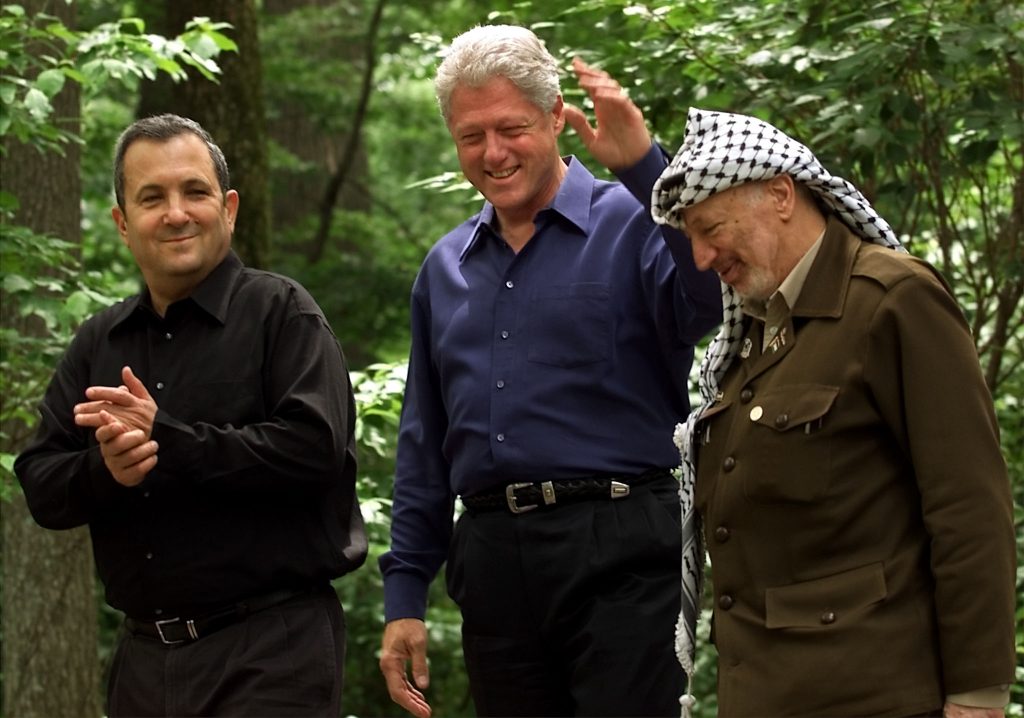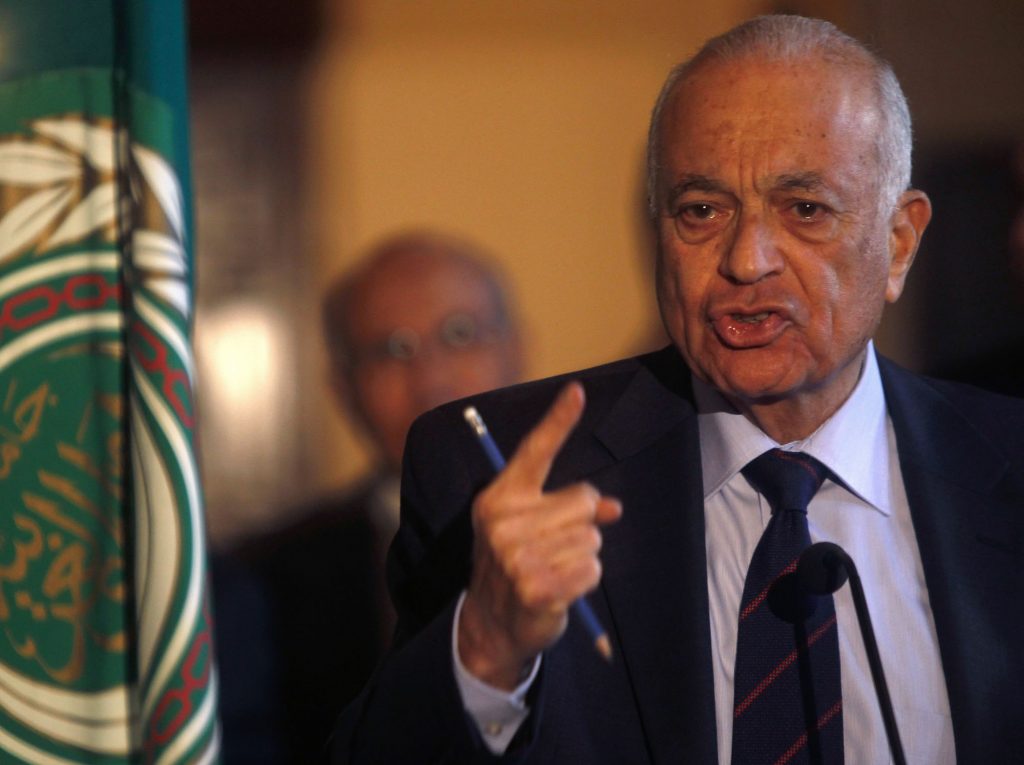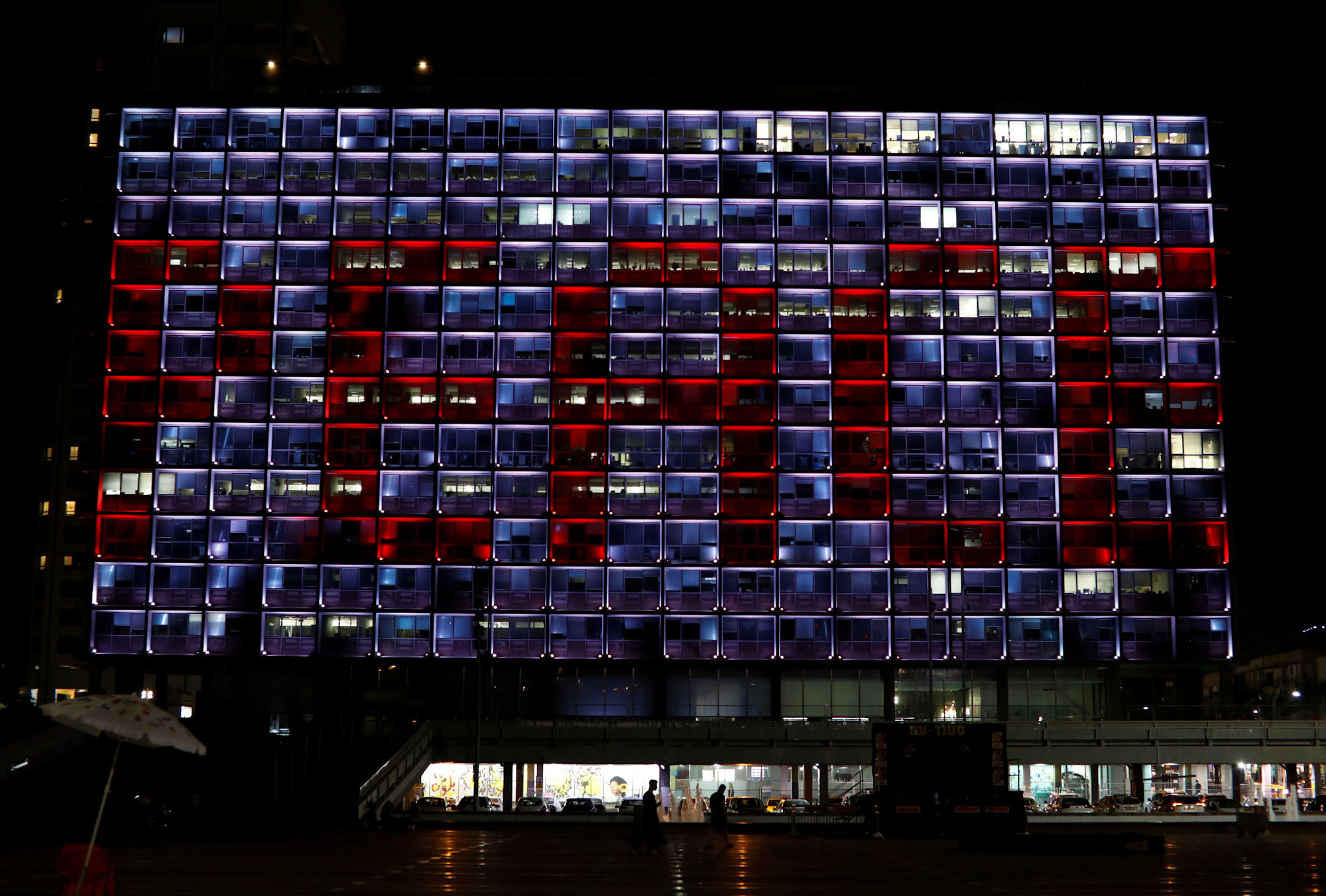Introduction
In September 2006, a few weeks after the end of the Second Lebanon War, a small group of Israeli businesspeople, former politicians, former security and military experts, and former diplomats, met and joined forces to offer a new paradigm of peace building in the Middle East.
The basic idea of the group was that Israel was facing a new reality in the region, where it shared similar concerns and interests with several Arab states, in the Gulf and beyond, who did not hide their initial support for Israel’s actions against Hezbollah. The latter could offer a new paradigm of negotiations through which Israel should respond to the Arab Peace Initiative and engage in an Israeli–Palestinian–Arab dialogue. In 2010, after several years of quiet efforts, the group was formally founded as “Yisrael Yozemet” (Hebrew for “Israel takes the initiative”) and launched its proposal for the “Israeli Peace Initiative”—the first ever Israeli response to the Arab Peace Initiative (API) from 2002. Following this step, the group embarked on a journey to promote a regional approach to solve the Israeli–Palestinian–Arab conflict.

One of the key guidelines for the group was to rethink and innovate new approaches that official state diplomats may not consider. This is an attempt to present these approaches and offer some of the lessons learned by the experience from a participant’s perspective.
The idea of civil society involvement in diplomacy is not new. Following the Oslo breakthrough model—generated by by Ron Pundak and Yair Hirschfeld—several Israeli civil society efforts emerged immediately after the collapse of the Camp David peace process in 2000: the Ayalon–Nusseibeh initiative for two states, the popular campaign to promote the security fence, the public call for a unilateral withdrawal from Gaza, and the Geneva Initiative of 2004. Thus, when we decided to launch our own project in late 2006, we had several case studies that inspired us and from which we could learn.
Phase 1 (2006–2011): Innovative Concepts
From its inception in 2006, the group founders, who came from high-tech business backgrounds and from the field of strategic planning, identified an opportunity to offer innovative approaches. The model of bilateral Israeli–Palestinian bilateral negotiations was repeatedly failing: Several efforts to “bring the parties to the negotiation table” have foundered, including the Annapolis process (2007–2008) and Kerry’s initiative (2013–2014).
Meanwhile, we had an opportunity to think afresh about the API. In several discussions with Arab interlocutors in 2006–2007, we sensed that perceptions in the Arab world were shifting. As Iran made progress in its nuclear program, shared Israeli–Arab interests emerged.
Thus, there was now openness to discuss the API as a platform for negotiations, rather than a “take it or leave it” dictate. To make this possible, our approach focused not on the quest for an abstract sense of justice: We believed that an honest view of Israeli interests, with regional security, stability, and long-term prosperity at its core, should drive the approach to resolving the conflict. These observations challenged the concepts and characteristics that had previously dominated the approaches to Israeli–Palestinian conflict resolution.
We began by studying the benefits of a regional approach, reminiscent of the 1991 Madrid conference, in which Israel could leverage its shared interests with the Arab states and offer a model where its concessions to the Palestinians would be rewarded by Arab gestures and eventually by normalization, in the spirit of the API.
We thus looked for a way to bring the API into the equation. Since Israel could neither accept nor reject it “as is,” the government chose to vaguely ignore it, or settle for non-committal words of appreciation. Our idea was to present the Israeli government with a mirror proposal, the Israeli Peace Initiative (IPI). Based on principles similar to those of the API, it was an initiative that reflected Israeli interests and positions regarding the Israeli–Palestinian end-game parameters, as well as principles of regional cooperation as suggested by the API.

Secretary-General Nabil al-Arabi at the Arab League headquarters in Cairo, in 2012. Photo credit: REUTERS/Amr Abdallah Dalsh
To give this weight, we wanted this proposal to be based on ongoing dialogue with Israelis and interlocutors from all over the Arab world. Therefore, we held two years of ongoing track-two meetings with more than 100 Arab interlocutors. We continuously tested Arab responses to these ideas. We learned what drove the positions and sensitivities of Palestinians, Egyptians, Jordanians, Saudis, and others. We discussed the text of the IPI in parallel in Hebrew, English, and Arabic. It was an eye-opening exercise.
Following the official publication of the IPI in April 2011, the responses from the Arab world were encouraging. We quickly realized that the legitimacy of our response was based on article 5 of the API, addressed to both the government and the people of Israel. Although we definitely never spoke on behalf of our government, as Israeli citizens we felt that it was our duty to raise our voices and send a message to the government of Israel, the Israeli public, and the Arab world that we respected the API as a historic move and saw it as a negotiable framework.
In May 2011, we visited the secretary-general of the Arab League, Dr. Nabil al-Arabi. This enhanced the sense that our role was to serve as a bridge between the Arab world and the Israeli government and the public. Our communication with our growing network of close to 1,000 contacts in the Arab world brought into focus the significant gaps in knowledge about Israel in the Arab world and the reciprocal lack of understanding about the Arab world in Israel.
Phase 2 (2012–Present): Concepts and Research
With that realization, we decided that we need to invest time and effort in advocacy efforts, both in Israel and the Arab world, and in identifying the strategic benefits of compromise and concessions, rather than just “preaching.” In doing so, we realized that we need to “re-invent” content, argumentation, and advocacy methods.
Our anchor is Israel’s national interest. We presented the idea of a “regional package deal for two states, in the spirit of the API and IPI,” and its practical benefits to Israel—regional security, economic growth, and diplomatic standing. This was analyzed as a preferred strategic Israeli choice, driven by Israeli interests and not by Palestinian demands for “historic justice.” Using this approach, we were able to present our rationale to pragmatic right-wing circles in Israel, who could see that it differed from traditional “left wing” arguments and narratives.
We also showed that each of the Israeli–Palestinians core issues (borders, Jerusalem, refugees, security) required the involvement of key Arab states and could not be agreed upon just by Israel and the PA. Thus, we claimed that only an inclusive process with the relevant stakeholders at the tables, conducted in parallel, could produce a comprehensive agreement.
We started to seed the idea of a regional approach—as an alternative to bilateral negotiations —both in Israel and the international community, from Europe to the US, and with representatives from all over the Arab world. We were often astonished to see how little was known about the API, the IPI, and their benefits—especially in EU countries, which were locked into old and failing models of negotiation platforms, even when they repeatedly went nowhere.
Adding the economic dimension to advocacy, we formed a group of economic experts during 2014–2016, and later we created a track-two group composed of 25 regional experts who jointly produced “Regionomix”—a blueprint for regional economic development with a forecast of economic benefits. Both studies showed a quantifiable impact on the Israeli and regional economies, in terms of GDP growth, less unemployment, longevity, and a better quality of life.
We amplified “weak signals” from and to all the relevant parties. We used every such signal in our quiet advocacy efforts in Israel, the Arab world, and internationally. This included the article that HRH Prince Turki Al Faisal published in Haaretz in July 2014, coupled by the late president Shimon Peres’s declaration of willingness to consider the API as a platform for negotiations.
In late 2014, after the failure of the Kerry initiative and in the aftermath of Operation Protective Edge, we decided to offer a new negotiation approach. Together with regional participants, we drafted a regional framework agreement and a gradual negotiation process to slowly implement it. We did not try to reach an agreed-upon document but rather focused on “gap maps,” the gaps in understanding as seen by Israeli, Palestinian, Jordanian, Saudi, Egyptian, and Emirati experts. We then had a clear idea of a solid “shared core” of agreed-upon elements that could become the baseline for a new process and for a new regional–Israeli–Palestinian framework.
This was done against the background of what we saw happening in Israel. In early 2013, we began addressing Israeli public opinion and identifying the prospects for change. We conducted public opinion surveys in Israel, mainly focused on one key concept: “What will be eventually acceptable to Israelis in the center-right pragmatic camp.” We knew that this segment was (and is) the game changer. Here we reached several conclusions and revalidated them every 6 to 12 months. We found out that this segment preferred a two-state solution as part of a regional package deal: They appreciated the Arab leaders more than their Palestinian counterparts. Moreover, when presented with our regional package solution and asked “can you live with it,” different surveys showed that about 75% to 80% of all Israelis agreed.
Modus Operandi—a Quiet Impact Group
Throughout the past 15 years, we thus developed, shaped, and constantly rebranded and adapted our modus operandi. In all fairness, when we started, we were hoping to see our ideas adopted more easily, yet over the years we acknowledged the need for patience and consistency. We did, however, commit ourselves to several principles, which were rather new and different from those prevailing in the traditional “left wing peace camp,” as it came to be tagged in Israeli society:
- We are not a “peace organization” but rather an organization that promotes our own understanding of Israel’s geostrategic interests through a regional approach. We see the pragmatic center-right wing as a game changer.
- We do not intend to attack our government but rather seek to work with every Israeli government regardless of its political structure. We genuinely believe that what we proposed can transcend political camps in Israel. Clearly, the Abraham Accords and the cancellation of annexation present such an end-to-end acceptance.
- We do not presume to speak or negotiate on behalf of the government of Israel. What we seek to ensure is that Israel’s government, political system, and the establishment are informed and enriched by what we hear from our Arab colleagues.
- We do not have an ego, logo, or partnerships. We consider our ideas “open code” so they can be used by everyone without reference to us.
- We realize that the current leaderships and personae in the different theaters are often unable or unwilling to change the status quo. Still, we decided that we should not try and compromise our ideas and change them to fit certain political scenarios. Instead, we felt that the ideas should be presented even if it would take a long time to accept them.
What Can Our Experience Teach?
These ideas and efforts were not a result of a predefined “recipe.” Rather, they are the result of an evolutionary process and sometimes improvisational and experimental approach. In retrospect, however, we can offer some insights for future civil society activists:
- Ask new questions and challenge traditional approaches (regional vs. bilateral);
- Present a mirroring initiative, instead of a yes/no trap (in our case, regarding the Arab Peace Initiative);
- Find a broader geostrategic context to solving the conflict (shared Israeli–Arab interests);
- Amplify strategic vision with tangible economic benefits (for Israel and “Regionomix”);
- Offer new conceptual frameworks beyond traditional diplomatic processes (combining the concept of a long-range horizon and a practical roadmap toward implementation).
- Create track-two channels that map and narrow the gaps, rather than trying to reach consensus;
- In the israeli context, focus on the pragmatic center-right as the key political constituency;
- Empower political leaders and organizations by seeding the ideas as “open code”;
- Find partners in the region through continuous engagement and ongoing dialogue;
- Sustain full independence and resist any foreign imprint.
Key New Concepts
More specifically, the following key points describe the innovative landmarks we created between 2006–2021—some of which found their way onto international diplomatic platforms (the French initiative in early 2015, the Kerry effort in early 2016, and the Trump initiative in 2020)—let alone the Abraham Accords.
- We are convinced that Israel should have responded to the Arab Peace Initiative with an Israeli one, which could have served as a platform for negotiations. It is not too late.
- The two-state solution is viable only as part of a regional framework for a permanent status agreement, that would offer Israel strategic rewards for its concessions to the Palestinians and give the Palestinians the necessary support for their tough decisions.
- The myth of bilateral negotiations should be finally buried. The current leaders are incapable of conducting them, and they have failed again and again by design.
- Since there is no foreseeable zone of possible agreement between Israel and the Palestinians, the concept of a flowery and romantic win-win solution should be buried as well. Instead, it is time to look at lose-lose multilateral deals with equally painful concessions, so all parties can compare their own pain to others and separately calculate their own benefits.
- The two state-solution cannot be achieved in one step. It has to be achieved through a combination of an agreed “political horizon,” coupled with a gradual process to achieve it, based on transactional and quadruple reciprocity implemented between Israel, the Palestinian Authority, the Arab states, and the international community. Now, with the Abraham Accords, the process can be accelerated.
- Bottom-up state building and regional cooperation should be based on a commitment to regional economic development, as it is the fastest way to show “quick wins” and the benefits of peace building. Regionomix should become part and parcel of the process.
- An on-going effort is required to build breakthrough “attitudes.” These require continuous dialogue, especially as we experience a transition of leadership to new generations. The language and attitude should be continuously updated to meet the hearts and minds of younger generations and should be attuned to the social media that they consume.
Finally, going forward, there is a need to combine a wider vision of the regional order together with the specific Israeli–Palestinian–regional agreements. Only by having a different understanding of future shared threats to our collective national security interests (such as food, water, climate, economic, and healthcare), can the next generation of leaders work collectively toward different approaches of problem solving and creative diplomacy. We do not accept the notion of “hopeless and inevitable” deterioration as the only possible scenario. As complex as the situation may look like, we believe that creative diplomacy should be used.
Based on the last 15 years of ongoing efforts and attempts, we are fully convinced that civil society should have the duty of enriching the discourse and strategic thinking of diplomacy and leadership through tactful and strategic innovation. The complexity that diplomatic challenges present to state leaders require multidimensional thinking and experience. Such challenges may be better addressed through quiet cooperation between the state’s political, diplomatic, and security leadership, as well as civil society, think tanks, and business leaders. At the end of the day, diplomatic breakthroughs cannot be based just upon traditional “tool kits.” The quest for diplomatic innovation, with the involvement and commitment of civil society and the business community, should be the ultimate goal.

